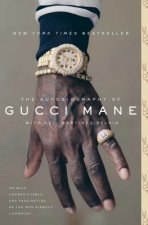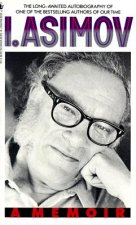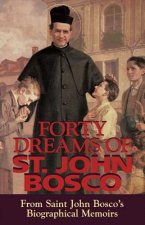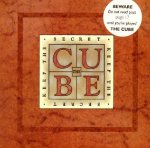
Kod: 09439089
New General Biographical Dictionary, Vol. 4 of 12 (Classic Reprint)
Autor Hugh James Rose
Excerpt from A New General Biographical Dictionary, Vol. 4 of 12 Beethoven, (Lewis von,) one of the finest musical geniuses that ever existed, but so eccentric in bis habits, that the world was long inclined to cull him a madma ... więcej
- Język:
 Angielski
Angielski - Oprawa: Miękka
- Liczba stron: 520
Wydawca: Forgotten Books, 2015
- Więcej informacji o książce

27.29 €
Dostępność:
50 % szansa Otrzymaliśmy informację, że książka może być ponownie dostępna. Na podstawie państwa zamówienia, postaramy się książkę sprowadzić w terminie do 6 tygodni. Gwarancja pełnego zwrotu pieniędzy, jeśli książka nie zostanie zabezpieczona.
Otrzymaliśmy informację, że książka może być ponownie dostępna. Na podstawie państwa zamówienia, postaramy się książkę sprowadzić w terminie do 6 tygodni. Gwarancja pełnego zwrotu pieniędzy, jeśli książka nie zostanie zabezpieczona.Przeszukamy cały świat
Zobacz książki o podobnej tematyce
-

Moonlight Masquerade
8.96 € -20 % -

Moodscapes
39.08 € -

Aria di giugno
10.07 € -2 % -

Music in Service
49.76 € -1 % -

History of the 3d, 7th, 8th and 12th Kentucky, C. S. A.
17.62 € -2 % -

Bullying: The Solution That Works for Parents and Teachers
13.89 € -1 % -

Biografie di Galileo
8.55 € -1 %
Bon podarunkowy: Radość gwarantowana
- Podaruj bon o dowolnej wartości, a my się zajmiemy resztą.
- Bon podarunkowy dotyczy całej naszej oferty.
- Możesz wydrukować elektroniczny bon z e-maila a następnie przekazać go obdarowanemu.
- Ważność bonu wynosi 12 miesięcy od daty wystawienia.
Powiadomienie o dostępności
Wpisz swój adres e-mail, aby otrzymać od nas powiadomienie,
gdy książka będzie dostępna. Proste, prawda?
Więcej informacji o New General Biographical Dictionary, Vol. 4 of 12 (Classic Reprint)
Za ten zakup dostaniesz 69 punkty
 Opis
Opis
Excerpt from A New General Biographical Dictionary, Vol. 4 of 12 Beethoven, (Lewis von,) one of the finest musical geniuses that ever existed, but so eccentric in bis habits, that the world was long inclined to cull him a madman. He was bom on the 17th of December, 1770, at Bonn, on the Rhine, his father occupying the situation of tenor at the electoral chapel. It has, however, been said, that his father was Frederic William II. of Prussia, as if none but a royal descent was adequate to his genius. His faculties developed themselves so early, that his father began to instruct him when he was only five years old, but soon found him above his lessons. Hence he gave him over to Van der Enden, one of the best pianists of that time. Subsequently, Neefe, by orders of the elector Maximilian, became Beethoven's master. He initiated the extraordinary child into the works of Sebastian Bach and Handel, which ever excited his reverence and veneration. At the age of eight (so it is said, at least), he excelled as a violin player; and at thirteen, some of his compositions were printed. But it was improvisation and the fantasia libera, in which he shone most brightly, and which he first exhibited before the learned composer, Junker, at Cologne, pouring forth a superabundance of rich and brilliant ideas. It was in this sort of boundless ramble, as it were, tlial his mind found nourishment and scope. In composition, he continually violated the rules of harmony then received. This caused an opposition that often harassed him, and probably iniured his temper. The talent) which he inowed on the organ, induced his patron, the elector, to send him in 1792 to Vienna, to perfect under Haydn his theoretic and practical acquirements. Just in the same way as Corneille had not been able to understand Racine, Uaydn was mistaken in Beethoven, whom he thought "not destined to be a musical composer and when asked his opinion about him, said drily, "he plays well on the piano." Mozart, however, had shown more penetration. When Beethoven had previously made a visit to Vicuna, in 1790, and had executed a fantasia libera before him, he cautiously said at first nothing, thinking that it had been previously practised and played by heart. But as Beethoven, suspecting this, requested Mozart to give niin some theme, and receiving one of a very complicated nature, he followed it extempore, during three-quarters of an hour. Holding his breath, Mozart slipped on tip-toe into the next room, and said to some friends there, "Mark well this young man, you will hear more of him." When Haydn went to England, he left Beethoven under the care of Albrechtsberger, from whom he received important lessons in counterpoint, as he gratefully acknowledged in his posthumous Studien. His reputation as a pianist and composer began now to be established, but it was his fantasie libera which carried away every hearer. At that period he also learnt much of ancient and modem languages, history, and the belles-lettres, his fife being generally spent alone. A musician, however, named Wolff (now forgotten) competed then with him as a player; yet, although rivals, they bore a sincere friendship toward.) each other. The crowd of amateurs became divided; prince Lichnowsky giving the palm to Beethoven, baron Wetzlar to Wolff. About the Publisher Forgotten Books publishes hundreds of thousands of rare and classic books. Find more at www.forgottenbooks.com
 Szczegóły książki
Szczegóły książki
Kategoria Knihy po anglicky Biography & True Stories Biography: general
27.29 €
- Pełny tytuł: New General Biographical Dictionary, Vol. 4 of 12 (Classic Reprint)
- Autor: Hugh James Rose
- Język:
 Angielski
Angielski - Oprawa: Miękka
- Liczba stron: 520
- EAN: 9781330429914
- ISBN: 9781330429914
- ID: 09439089
- Wydawca: Forgotten Books
- Waga: 689 g
- Wymiary: 229 × 152 × 27 mm
- Data wydania: 02. June 2015
Ulubione w innej kategorii
-

Tuesdays with Morrie
9.46 € -4 % -

Persepolis I & II
11.27 € -28 % -

The Diaries of Franz Kafka
16.31 € -8 % -

Cicero
17.72 € -22 % -

Vet in Harness
11.27 € -28 % -

Youth in Revolt
17.32 € -27 % -

Complete Books of Charles Fort
37.37 € -25 % -

Devil on One Shoulder and an Angel on the Other: The Story o
18.53 € -

Rommel
13.49 € -5 % -

Little Britches
14.50 € -19 % -

Becoming Myself
14.90 € -24 % -

Sam Walton
9.36 € -16 % -

Titan
18.93 € -21 % -

Surprised by Oxford
17.42 € -17 % -

Bad as I Wanna Be
8.65 € -16 % -

American Prometheus
20.04 € -

Autobiography of Gucci Mane
17.92 € -

Steve Jobs
29.91 € -23 % -

I, Asimov
8.96 € -13 % -

Collection of Biographies of 4 Kriya Yoga Gurus by Swami Satyananda Giri
19.34 € -19 % -

And I Don't Want to Live This Life
14.10 € -22 % -

My Own Words
16.72 € -9 % -

Inspire
11.27 € -28 % -

The Other Side of the Coin: The Queen, the Dresser and the Wardrobe
24.68 € -11 % -

Very Easy Death
14.70 € -3 % -

I Know Better Now
23.97 € -21 % -

Forty Dreams of St. John Bosco
16.92 € -19 % -

CUBE
14.70 € -9 % -

Illusions
10.07 € -15 % -

Becoming Holyfield: A Fighter's Journey
18.23 € -12 % -

Arctic Adventure
27.50 € -

Kate Moss & Johnny Depp
16.11 € -

History and Stories of Goju-Ryu
22.36 € -

SPICE GIRLS
18.03 € -

Avedon: Something Personal
32.03 € -21 % -

Break Point
9.26 € -28 % -

Jackie, Janet & Lee
19.64 € -23 % -

Magic Years
17.12 € -22 % -

Oriana Fallaci
13.69 € -28 % -

Celine Dion
17.52 € -

Charles Bukowski
16.21 € -28 % -

Watch My Back
11.78 € -24 % -

Dust Tracks On A Road
11.27 € -28 % -

Billy the Kid
15.41 € -18 % -

Making Dances That Matter
28.30 € -4 % -

Only Living Witness
15.71 € -2 % -

Leatherman's Protocol Handbook
20.54 € -1 % -

Freddie Mercury A to Z
13.39 € -16 % -

Heartbreaking Work of Staggering Genius
11.27 € -23 %
Osobný odber Bratislava a 2642 dalších
Copyright ©2008-24 najlacnejsie-knihy.sk Všetky práva vyhradenéSúkromieCookies


 21 miliónov titulov
21 miliónov titulov Vrátenie do mesiaca
Vrátenie do mesiaca 02/210 210 99 (8-15.30h)
02/210 210 99 (8-15.30h)